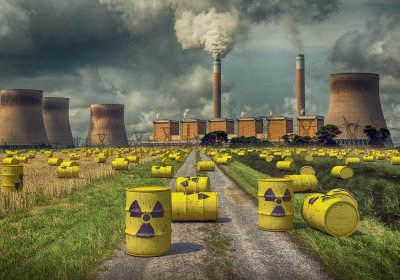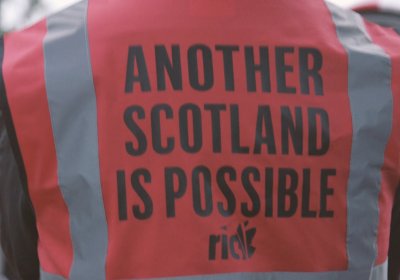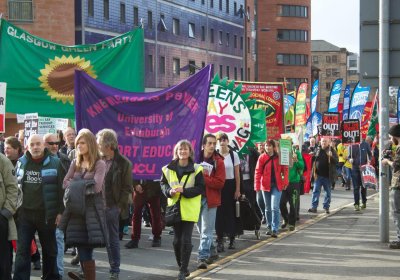To cut greenhouse gas emissions we need to rapidly shift to safe, renewable energy. Nuclear power is not the answer, writes Simon Butler.
Edinburgh
Linda Pearson, anti-nukes activist, says that Members of the Scottish Parliament are effectively profiting from Trident due to the Scottish Parliament’s pension fund investments and that they should re-invest the money into projects which make Scotland a better place to live.
Few would have predicted, until recent times, that the biggest act at the Glastonbury music festival would be a 68-year-old socialist reciting a 200-year-old poem.
Yet Labour leader Jeremy Corbyn’s June 24 speech at Glastonbury attracted what was likely the largest crowd in the festival’s history, NME said.
The recent British general election delivered very different results in Scotland than those of England and Wales.
While the question of Scottish independence was still a major issue for voters, tactical errors by the Scottish National Party (SNP) and a muted Jeremy Corbyn-effect in Scottish Labour’s favour led to some unforeseen outcomes.
After promising for months that she’d never call an early election, Tory Prime Minister Theresa May called a snap general election in April — fully expecting to be returned with a thumping Conservative majority.
What seemed at first to be a depressing and predictable British election, with the hard right Tories under Prime Minister Theresa May set for a larger majority, has become a fascinating election contest.
Labour’s support has surged to the point where something unthinkable just weeks ago — a Jeremy Corbyn prime ministership — is now at least an outside chance.
You know how it is when you go to the movies. Sometimes the sequel has a bigger impact than the original.
The announcement by Scottish First Minister Nicola Sturgeon that she would bring forward proposals for a second referendum on Scottish independence may prove another example of this phenomenon.
There is a real feeling across Scotland, in Westminster and the media, that this time the Yes side could win and Scotland could break from the “United Kingdom”.
Britain's May 7 elections revealed the deep divides emerging in British society and offered the promise of a constitutional crisis and social struggles to come. Most commentators had expected the result to be a hung parliament; polls had consistently shown the Conservative (Tory) and Labour parties to be neck and neck. In Scotland, the polls pointed to a wipe-out of the previously dominant Labour Party, with the Scottish National Party (SNP) poised to make sweeping gains on a platform of opposing austerity and Trident nuclear weapons.
Edinburgh’s Augustine United Church is a pretty cold place when the wind is howling, as it was when the Scottish Socialist Party (SSP) held its annual conference there on October 25.










